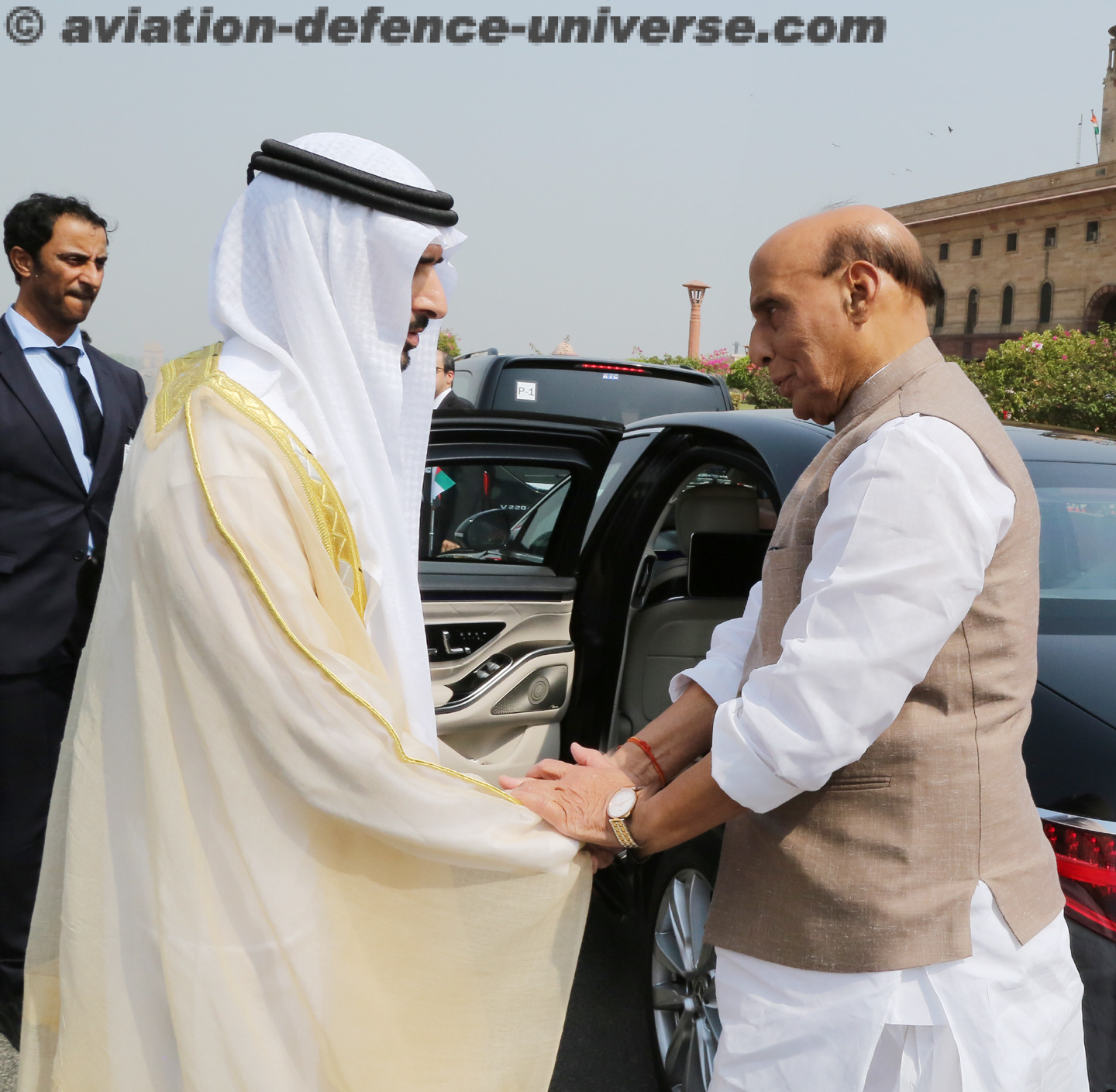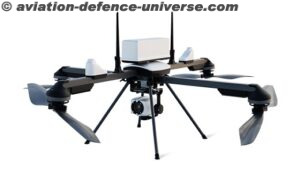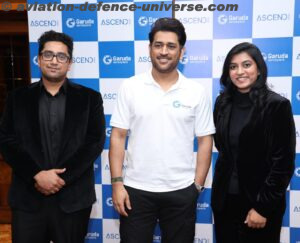London 15 September 2021. Leonardo and Northrop Grumman announce their intention to jointly pursue opportunities in the Vertical Take-Off and Landing (VTOL) Uncrewed Aerial Systems (UAS) domain.
Drawing on Leonardo’s expertise in rotorcraft and Northrop Grumman’s capabilities in advanced aeronautics and next generation autonomous uncrewed aerial systems, the companies will focus on jointly addressing global opportunities in the VTOL UAS market. The companies will consider collaboration on air vehicle design, system architectures, payload optimisation and integration within next generation battlespace architectures, with a focus on customer requirements and mission-based Concepts of Operations.
The agreement is the latest development in a successful long-term partnership between Northrop Grumman and Leonardo. The companies work closely together on airborne platform protection. This collaboration goes back to 1995 when the team jointly developed the AN/AAQ-24(V) Nemesis DIRCM for the US Department of Defense and UK Ministry of Defence. Today the companies are working to deliver the United States Army’s Common Infrared Countermeasures (CIRCM) programme, which will protect hundreds of aircraft.
Gian Piero Cutillo, Managing Director of Leonardo Helicopters, said, “We see this partnership as a great opportunity to leverage the synergies between Leonardo and Northrop Grumman in the sphere of VTOL and UAS technologies. This collaboration comes at a time when we see emerging military and civil requirements worldwide in the uncrewed domain. This partnership will enable a strong and concerted approach to existing, as well as next-generation VTOL UAS technologies from two leading global aerospace engineering companies.”
Northrop Grumman Australia and Leonardo Australia have teamed to compete to provide a Maritime Uncrewed Aerial System (MUAS) to the Royal Australian Navy under the SEA129 Phase 5 programme, using the Leonardo AWHero and elements of Northrop Grumman’s advanced battlespace architecture system as the basis of a next generation deployable intelligence, surveillance, reconnaissance and targeting (ISR&T) capability.
Nick Chaffey, Chief Executive, UK, Europe, Middle East, Northrop Grumman said: “Northrop Grumman has decades of experience and unmatched expertise in developing and delivering uncrewed and autonomous aerial systems including the RQ-4 Global Hawk, MQ-8C Fire Scout, Firebird, a UAS that has the capability to be flown manned, and the pioneering X-47B aircraft. There are many possibilities that our collaboration with Leonardo will deliver for customers worldwide as they look to solve new challenges in a complex, unpredictable threat environment.”
Leonardo has developed remotely piloted systems and technologies across all domains, with significant investment in platforms, sensors, communications, control systems, in addition to counter-drone capabilities and technologies for uncrewed systems’ traffic management and air traffic control. Leonardo is the only company in Europe able to provide complete uncrewed solutions including the platform, sensors, mission system and ground control stations.
The company also offers a ‘drones as a service’ model to customers, owning and operating its own fleets of UAS and providing intelligence and surveillance information directly to the user. The continued development and integration of cutting-edge solutions across all domains of remotely-piloted and autonomous/semi-autonomous systems and technologies is a key element of Leonardo’s BeTomorrow2030 Strategic Plan.
Northrop Grumman-developed autonomous systems operate across the globe with 24+ hour endurance, collecting essential C4ISR data over land and sea to enable rapid, informed decision-making. In addition to developing new aerial systems, such as Project MOSQUITO for the RAF, Northrop Grumman’s Distributed Autonomy/Responsive Control (DA/RC) system is a leading prototype Joint All-Domain Command and Control (JADC2) system.
It can command and control a wide range of complex systems across all domains and services. This mature collaborative autonomy software provides decision making superiority for a manned/unmanned fleet across a range of environments from permissive to highly contested environments.

































































































































